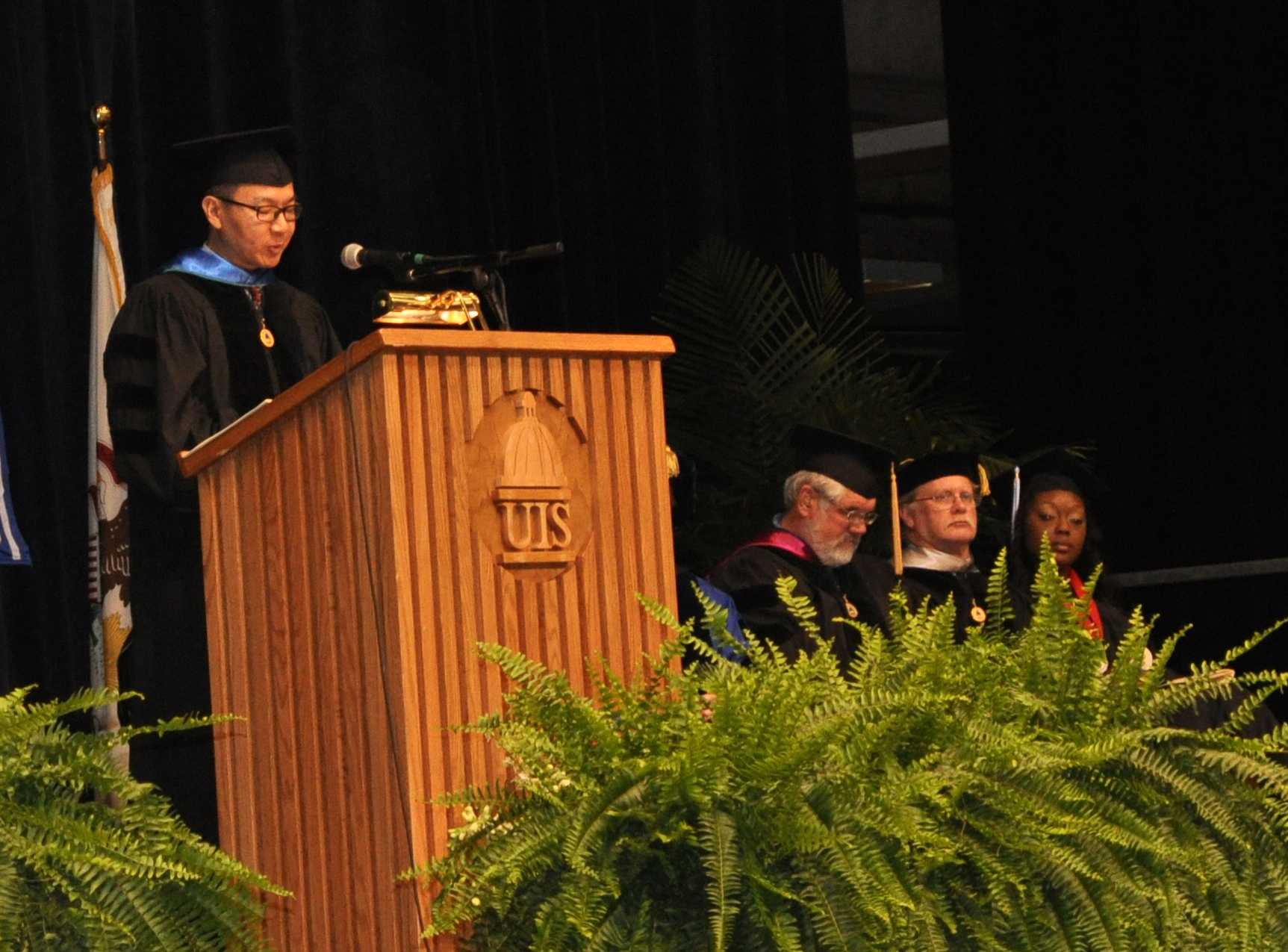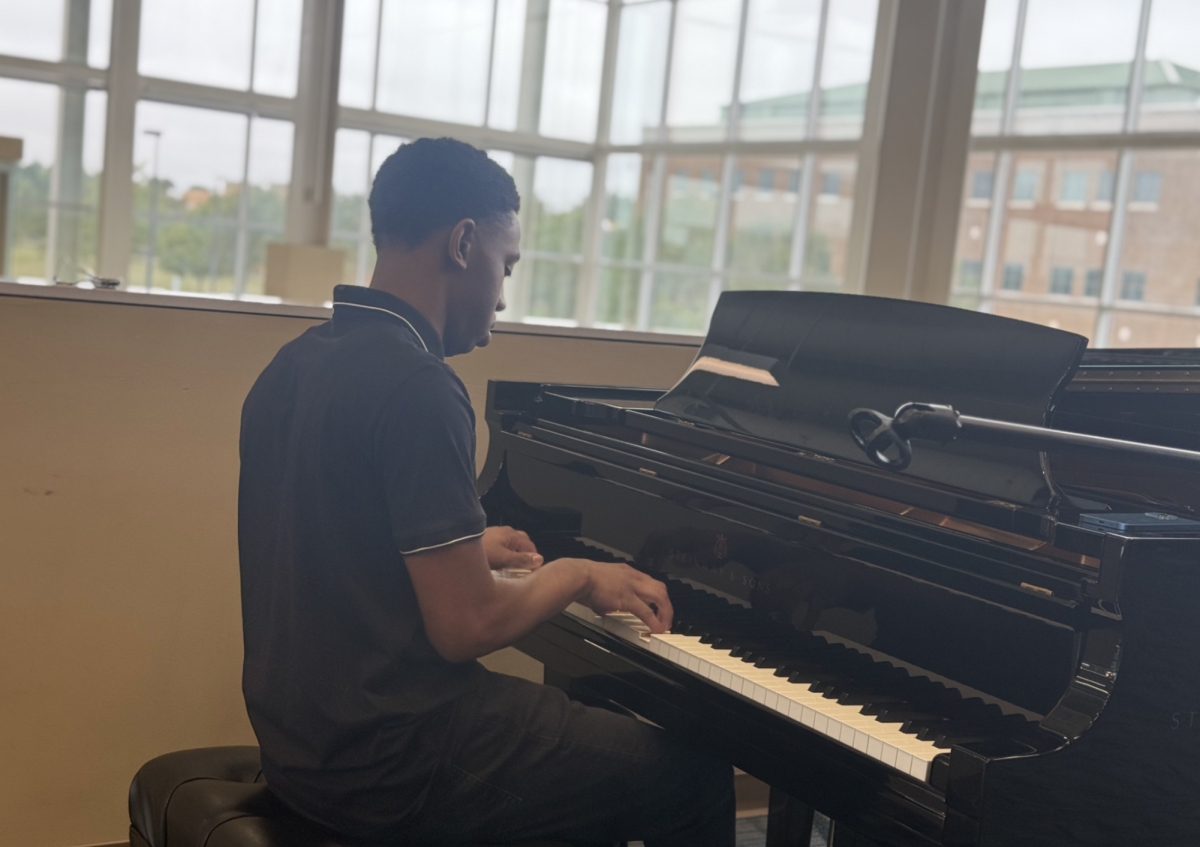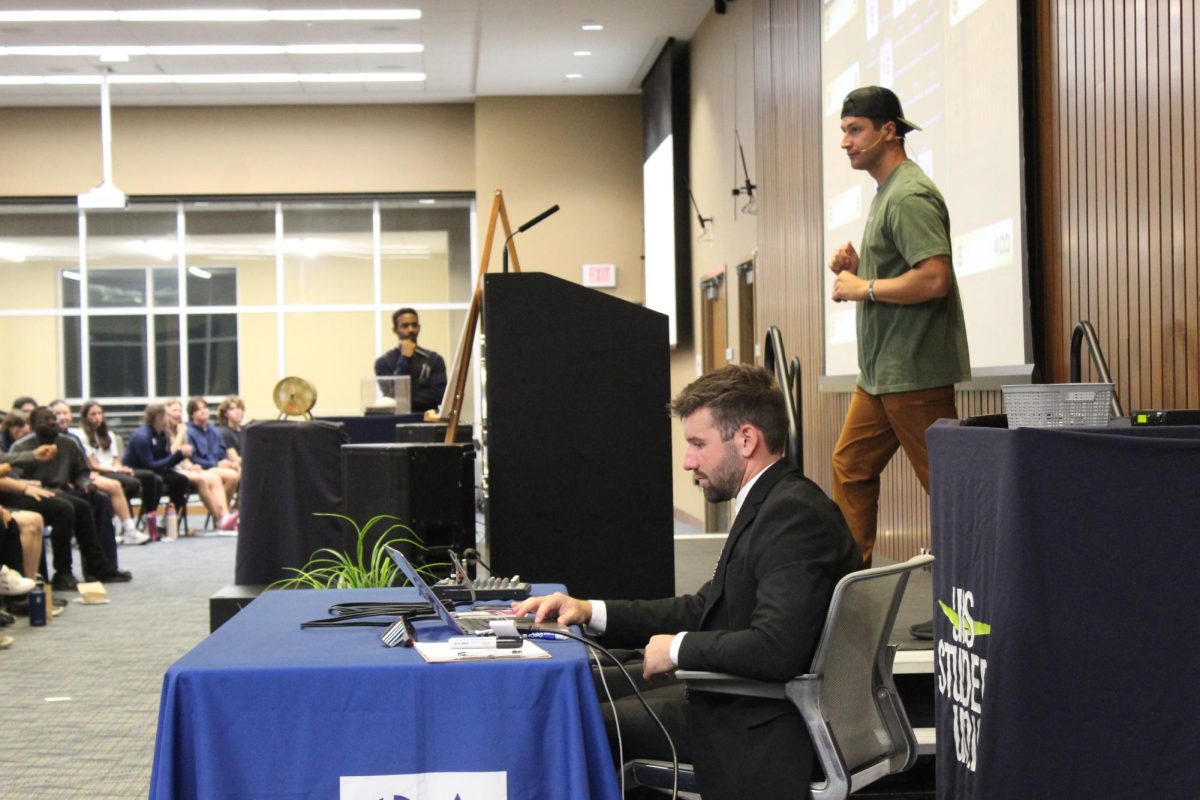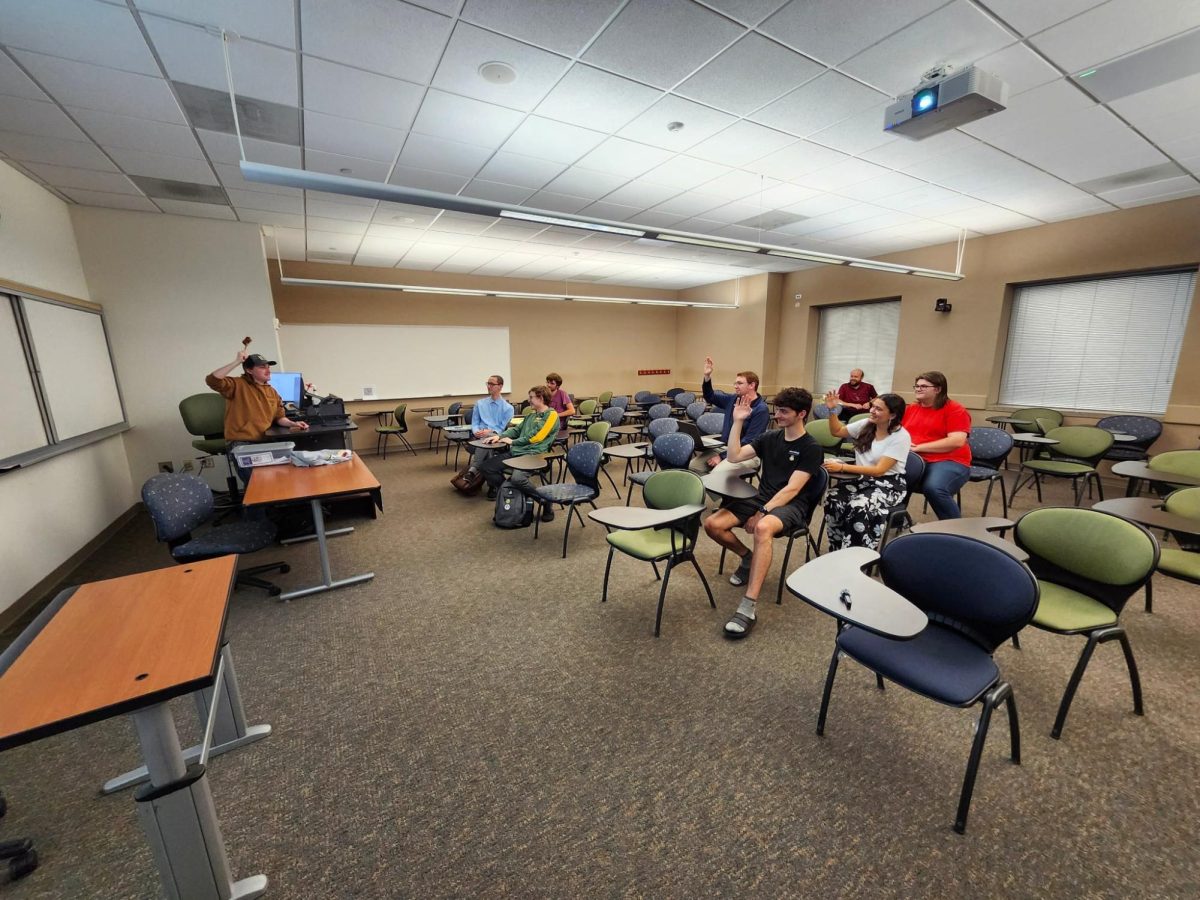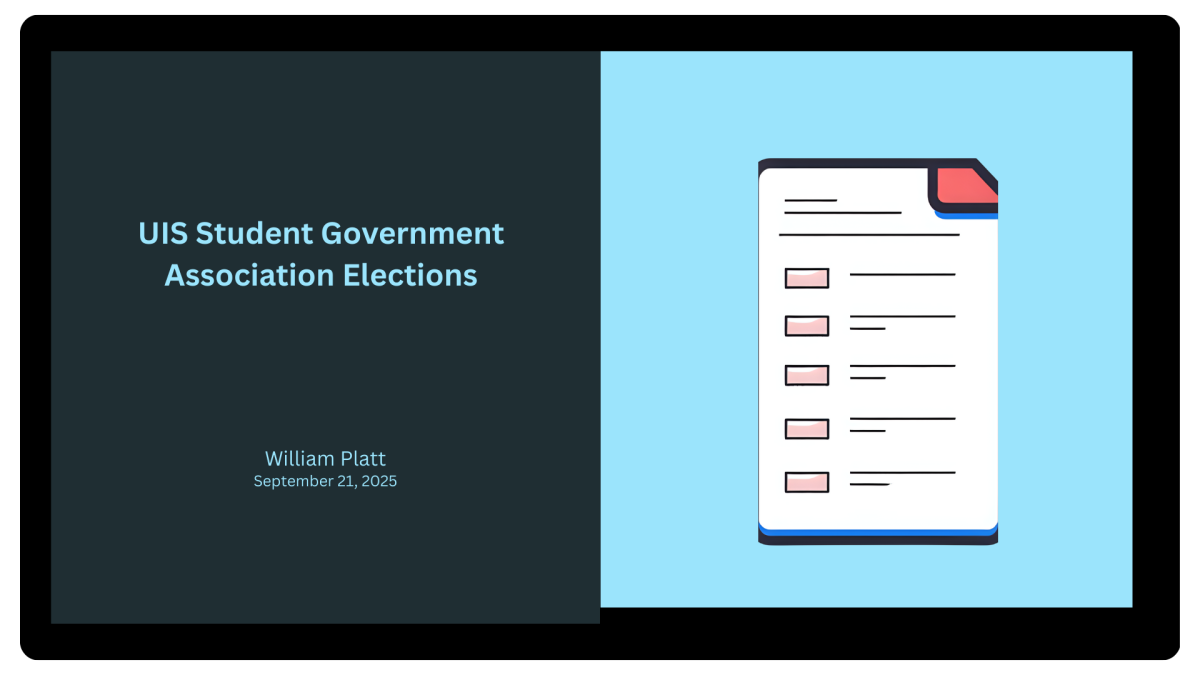Wenguang Huang, Sangamon State University (SSU) alumnus, and the 2012 commencement speaker shared wisdom, personal history and job tips for graduates of UIS through a personal interview and his commencement speech.
After coming to the United States and SSU (now UIS) in 1990, Huang embarked on a journey that led him through his graduation from the Public Affairs Reporting (PAR), into a career in journalism and beyond.
In his career, Huang has been a journalist both domestic and international, submitting articles to multiple well-known news sources and corresponded with several foreign branches of news, including the New York Times- Beijing. He has also translated several books from Chinese to English, and recently published a memoir of his own.
To open his commencement address, Huang shared an anecdote.
“There is a Chinese saying – when you taste sweet water, don’t forget the person who dug the well. I want to thank this university, which gave me the skills and confidence to write successfully in a new language. This community embraced me warmly and helped me flourish in the country, which I now call home.”
He explained that the word Sangamon sounds like the Chinese characters for “three doors,” which Huang explained is exactly what SSU offered him. His first door was journalism, the second was American life, and the third was politics.
Huang chose to come to UIS and give his commencement speech instead of being in Poland as a finalist for a translating award. His reasoning was that this was more important. He felt that the whole community of SSU helped him and played a “pivotal role in [his] life.” And he credits an internship through SSU with making his job search easier.
“Your, or our I should say, paper was the start of my writing career in English,” he said. Huang had the opportunity to be an intern in Springfield, learn about American journalism and politics, and ultimately start his life as a published writer.
His advice to graduates: “Be international minded.” In America journalist have opportunities that those in other countries don’t have, Huang explained. In China he could not criticize governing bodies, but in America he discovered that his criticisms were praised.
He still remembers the first articles he wrote for the SSU News, the student newspaper of the time.
Huang elaborated in his commencement speech saying, “the article that I had labored for three days gave me the confidence to continue to publish my work in English.” He continued, “I also had a taste of the sweetness of free speech when I submitted an article to the Illinois Times, criticizing the Western media for their sensationalized coverage of the student movement in China. Instead of getting into trouble for holding dissenting views, as I would have in my native country, my editor, several professors and readers praised my honesty. Those two articles are now framed and hang in my study.”
Huang stated that when he was in Springfield, and transitioning to American life the “PAR program enabled [him] to learn about America and prepared [him] well.” In his commencement address he gave several examples of friends and faculty exposing him to various American traditions, such as Thanksgiving and the Illinois State Fair. He felt that he got a lot of personal attention from professors as an international student, and that helped him adjust.
He went on to explain that his experiences at SSU inspired his memoir The Little Red Guard, in part. “I used the book to let people know about Chinese culture.” Many people in America come from different places, and once they get here they want to be assimilated, Huang explained. They learn American things and move away from their culture. They have to learn to balance old culture and American culture. He wanted to share his experience as an immigrant who was struggling with two cultures, as he became a Chinese American.
“Journalists always like to hear others stories, you don’t like to talk about yourself,” Huang said. So writing his book was a bit outside the norm for him, as it is a personal memoir about his family and China.
In addition to learning about American life, Huang shared his recollections of learning American politics in his commencement speech. He stated, “…getting an in-depth look of law-making was enlightening. If democracy was only an abstract idea when I protested in China, I grasped its true meanings while interning with the General Assembly. The experience prompted me to become a U.S. citizen in 1998. When I cast my first vote in the presidential election, I teared up.”
Huang’s advice to graduates was simple, be international minded. He encourages graduates to focus on international opportunities and don’t be afraid to compete for jobs. “Jump out of your comfort zone,” he said. Huang illustrated this point with a story in his speech about a frog who didn’t know life existed outside of the well he lived in, then one day he is encouraged to come out and see what was being offered.
“That tale always encouraged me to risk jumping out of my comfort zone and to take a broader perspective on life. Most of us have frog-like fears, but when we consider the crow’s vantage point, new horizons can be both physically far away or a leap in activity. The world is your pond,” said Huang.
He believes students should get experience and “take risks, both in Springfield, and the outside world.” Huang also suggests learning a foreign language, and again, be open-minded. He demonstrated this point in his commencement speech as well, saying, “when you plan your future, look beyond Springfield and even the boundaries of our country, and compete for opportunities in Shanghai, Sao Paulo, Nairobi and New Delhi, whether to take up a corporate job, teach English or to help people in need”.
He concluded his commencement address with these thoughts:
“My last insight comes in the form of another of my father’s sayings, which is that “A person depends on his parents at home and on his friends outside.”
At work or school, we have been taught how to stand out and show our individuality, which is perceived as a strength in this country. However, humility and collaboration, which are much treasured in the East, will also serve you well. Be a good listener and learn before rushing into any quick judgment.
The knowledge and skill you have gained from UIS, your parents and the community will carry you very far.”
To view Huang’s complete commencement speech, visit: http://www.uis.edu/commencement/2012/Wenguang-Huang.html

